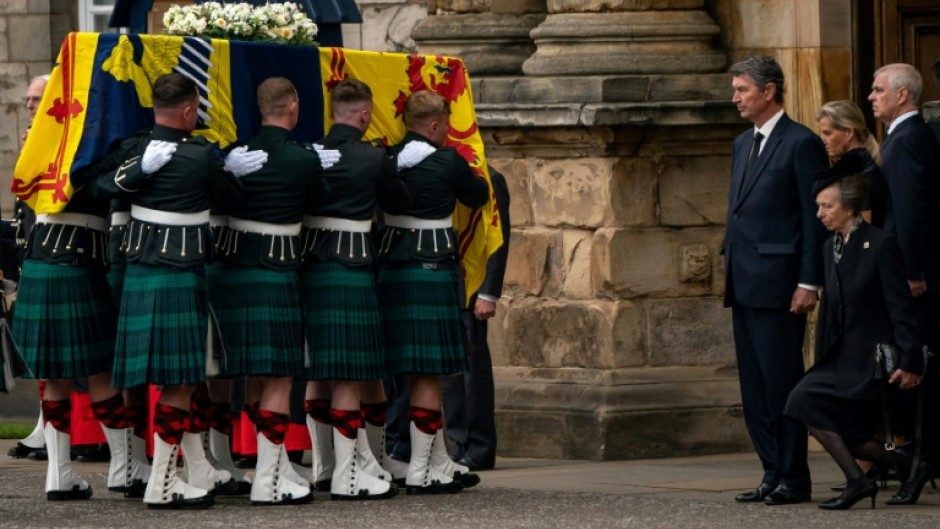EDINBURGH - Thousands of mourners thronged the route for the final journey of Queen Elizabeth II on Sunday as her coffin arrived in Edinburgh from the Scottish retreat where she died.
Huge crowds packed the streets of Scotland's capital as the hearse bearing Britain's longest-serving monarch completed the first leg of a sombre odyssey that will culminate with her state funeral in London on September 19.
Soldiers in kilts stood to attention as the seven-car cortege arrived at Holyroodhouse palace after a six-hour drive from the queen's Balmoral residence where she passed away on Thursday, aged 96.
Some of the well-wishers along the way had thrown flowers or applauded, while others were in tears as the convoy including the queen's only daughter Princess Anne went by.
"It is history, history in the making. We lived so long with the queen -- 70 years," said former soldier Stuart Mackay.
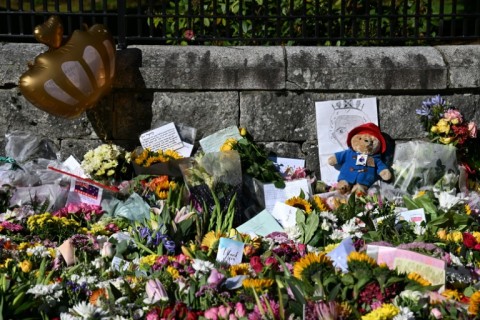
"It's the only Monarch we've known and I think it's my duty to be here to wave her goodbye."
The queen's coffin will rest in Holyroodhouse Palace, the monarch's official residence in Scotland, for a day before being moved to St Giles' cathedral for the public to pay their respects.
Her son Charles III -- formally proclaimed monarch on Saturday -- will travel to Edinburgh on Monday for a prayer service and to mount a vigil by her coffin along with other members of the royal family.
The body of the queen will be flown to London the day after to lie in state for four days, which is expected to draw at least a million people, ahead of a funeral set to be watched worldwide and attended by numerous heads of state.
- 'Poignant moment' -
The symbolism of the queen's last journey will be heavy for Scotland -- a nation with deep royal links, but where there is also a strong independence movement intent on severing the centuries-old union with the United Kingdom.
Scotland's First Minister Nicola Sturgeon wrote on Twitter that it was a "sad and poignant moment" to see the queen leave her cherished Balmoral refuge for the final time.
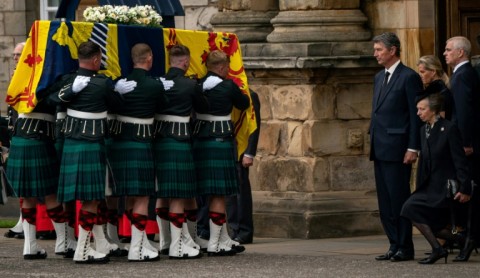
Charles -- also declared monarch in Scotland at a pomp-filled ceremony on Sunday -- and other royals will on Monday take part in a procession to convey her coffin along Edinburgh's Royal Mile to St Giles' Cathedral.
The following day the coffin will be flown by Royal Air Force jet to Northolt airfield near London, and driven to Buckingham Palace. Then, on Wednesday, it will be moved to Westminster Hall to lie in state.
King Charles will also visit Northern Ireland and Wales in a show of national unity. The new monarch will be joined at memorial services by British Prime Minister Liz Truss, who was only appointed by the late queen on Tuesday.
Charles has seen his popularity recover since the death of his former wife Diana, Princess of Wales, in a 1997 car crash, but he takes the throne at a moment of deep anxiety in Britain over the spiralling cost of living and international instability caused by the war in Ukraine.
- William and Harry together -
While Charles' accession has pushed Britain into what newspapers have called the new "Carolean" era, Britain and the royal family are still coming to terms with the end of the Elizabethan age.
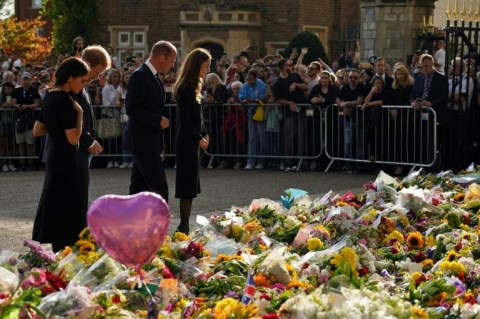
Prince William broke his silence with an emotional tribute to his beloved "Grannie" on Saturday.
"She was by my side at my happiest moments. And she was by my side during the saddest days of my life," said William, who has now become the Prince of Wales.
But the queen's death also brought a surprise show of unity from William, 40, and his younger brother Harry, 37, when they emerged with their wives to speak to well-wishers outside Windsor Castle.
The sight of the two couples, who have barely seen each other since 2020, together -- even if they separated to speak and shake hands with different sides of the cheering crowds -- will likely spark rumours of a reconciliation.
Pictures of the four were splashed on the fronts of Sunday's newspapers.
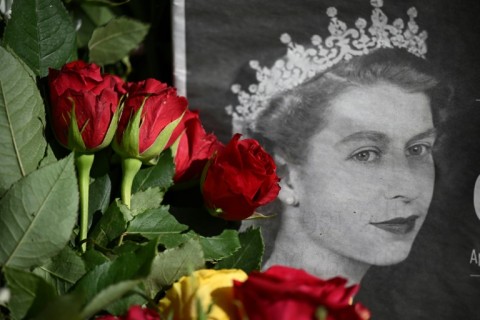
"Reunited for granny," read the Sunday Mirror's headline, while the Telegraph ran with "Reunited in sorrow" and the Sun with "All 4 One".
The Sunday Times focussed on the apparent frostiness, with the headline: "Warring Windsors' awkward truce to honour the Queen".
- 'Inspiring example' -
Charles vowed at the formal Accession Council at St James's Palace on Saturday that he would "strive to follow the inspiring example I have been set" by his mother during her "lifetime of service".
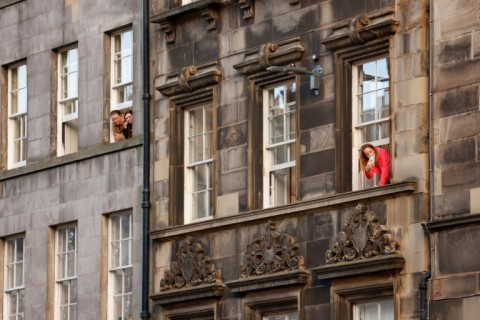
Thousands of people have gathered outside Buckingham Palace and other royal residences in recent days to lay flowers and messages of condolence, or simply to experience history in the making.
But officials expect far more people to pay their respects while the queen lies in state, before the televised funeral service at Westminster Abbey opposite.
The funeral for the queen -- who came to the throne aged just 25 in 1952 -- will be attended by national leaders including US President Joe Biden, Australian Prime Minister Anthony Albanese and possibly Japanese Emperor Naruhito.
China's President Xi Jinping, who is not expected to attend, said he was willing to "expand friendly exchanges and mutually beneficial cooperation" as he congratulated Charles on ascending to the throne.
Charles was formally named king in Australia and New Zealand -- former British colonies that have been independent for decades but retain the monarchy -- in tandem ceremonies on Sunday.
He hosted his first reception Sunday for representatives of the Commonwealth realms, the 14 former colonies over which he reigns in addition to Britain.
With republican movements gaining ground from Australia to Antigua, one of the 73-year-old's biggest challenges will be how to keep together the worldwide family that his late mother Queen Elizabeth II so loved.
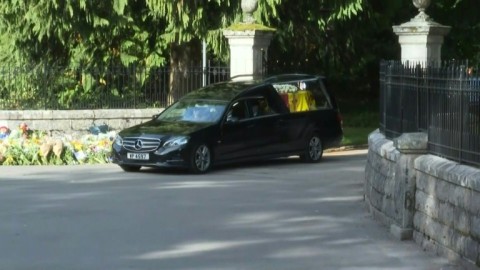
Charles's coronation, an elaborate ritual steeped in tradition and history, will take place in the same historic surroundings of Westminster Abbey, as it has for centuries, on a date to be fixed.

